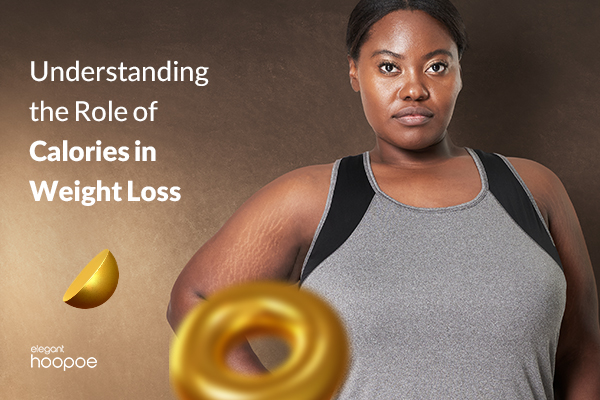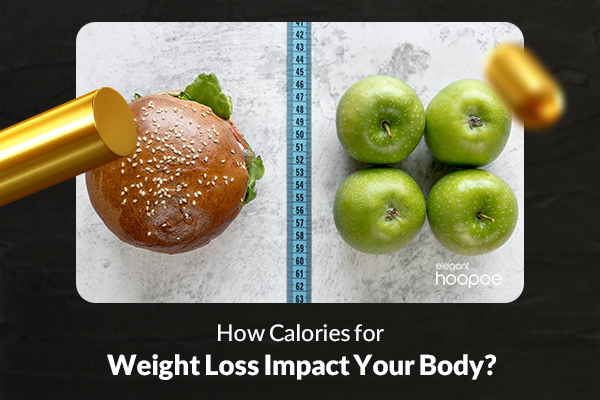Are you want to lose some extra pounds and improve your overall health? One of the key factors in successful weight loss is understanding the concept of weight loss calories. Calories are units of energy that our bodies use to function properly. When it comes to weight loss, the general principle is to consume fewer calories than your body burns. This deficit prompts your body to tap into its fat stores for energy, resulting in weight loss over time.
To determine how many calories you should eat to lose weight, there are several factors to consider, including your age, gender, weight, height, activity level, and weight loss goals. A general guideline is that to lose one pound of body weight, you need to create a calorie deficit of about 3,500 calories. This means you would need to burn 3,500 more calories than you consume through food and beverages to lose one pound.
Attention and concern about weight is not the only concern of obese and overweight people. Nowadays, many people are trying to maintain their weight and take care of their physical condition. An important factor that plays a decisive role in realizing this is the number of calories consumed during the day. If, for any reason, you are one of those people who are in a constant battle with calories and looking to lose weight and you don’t know how much you should eat daily, read the following article to see how many calories to lose weight. Good luck on your weight loss journey!
Counting Calories for Weight Loss: Fact or Fiction?
Counting calories can be an effective strategy for weight loss, but it is not the only or the most important factor. The quality and balance of the diet, as well as other lifestyle factors such as exercise and stress management, are also important for weight loss and overall health.
However, counting calories can be helpful for some people to create a calorie deficit and understand how much they are consuming. This can be especially useful for those who may not have a good sense of portion sizes or may be consuming more calories than they realize.
To count calories, you need to determine your daily calorie needs to be based on factors such as age, sex, weight, height, and activity level. Then, you can track the calories you consume through food and drink using a food diary or a smartphone app.
It is important to note that not all calories are created equal. Foods that are high in sugar, saturated fat, and refined carbohydrates may be high in calories but offer little nutritional value and can lead to weight gain and other health problems. On the other hand, foods that are high in fiber, protein, and healthy fats may be lower in calories but provide more nutrients and support weight loss and overall health.
What is a weight loss calorie calculator?
A weight loss calorie calculator is a tool that estimates the number of calories an individual needs to consume to achieve their weight loss goals. These calculators take into account factors such as age, gender, height, weight, and activity level to estimate an individual’s daily calorie needs.
To use a weight loss calorie calculator, you typically input your personal information and select your weight loss goal and timeline. The calculator then provides an estimate of the number of calories you should consume each day to achieve your goal, based on a calorie deficit of 500-1000 calories per day.
It’s important to note that weight loss calorie calculators are only estimates and may not be 100% accurate. Individual calorie needs can vary based on factors such as genetics, hormones, and metabolic rate. Therefore, it’s important to use a weight loss calorie calculator as a general guide and to consult with a healthcare professional or registered dietitian for personalized dietary advice.
In addition to calculating calorie needs, some weight loss calorie calculators may also provide additional features such as tracking physical activity and food intake, setting weight loss goals, and providing nutrition and exercise recommendations.
How does a weight loss calorie calculator work?
A weight loss calorie calculator typically uses a mathematical formula, such as the Harris-Benedict equation or the Mifflin-St Jeor equation, to estimate your Basal Metabolic Rate (BMR) and Total Daily Energy Expenditure (TDEE). BMR is the number of calories your body needs to function at rest, while TDEE is the total number of calories your body needs based on your activity level. The calculator then subtracts a certain number of calories (usually 500-1000 calories per day) to create a calorie deficit for weight loss.
Are weight loss calories calculators accurate?
Weight loss calorie calculators provide an estimate based on the information you provide, but they may not be 100% accurate. Individual factors such as metabolism, body composition, and other variables can affect your actual calorie needs. It’s important to use the calories to weight loss calculator as a starting point and adjust your intake based on your progress and how your body responds.
Should I follow the calorie intake suggested by a weight loss calorie calculator?
The suggested calorie intake from a weight loss calorie calculator can be a good starting point, but it’s important to listen to your body and monitor your progress. If you feel too hungry or fatigued, it may indicate that your calorie intake is too low, and you may need to adjust accordingly. It’s essential to prioritize your health and well-being and make adjustments as needed to ensure a safe and sustainable weight loss journey.
Remember, weight loss should be approached with a balanced and healthy mindset. Consulting with a healthcare professional or registered dietitian for personalized recommendations is always recommended to ensure you’re making informed choices that align with your individual needs and goals. Good luck on your weight loss journey!
what are Online calorie counters?
Online calorie counters are tools that help you track the number of calories you consume daily. These tools usually have a database of foods and beverages with corresponding calorie values, and allow you to log your meals and snacks to keep track of your calorie intake.
Many online calorie counters also allow you to track other nutrients, such as carbohydrates, protein, and fat and may provide additional features such as tracking physical activity and setting weight loss goals.

Understanding the Role of Calories in Weight Loss
Calories are units of measurement that indicate the amount of energy provided by food or expended by physical activity. When it comes to weight loss, the basic principle is that to lose weight, you need to burn more calories than you consume.
Every person has a certain number of calories that they need to consume each day to maintain their current weight, which is known as their maintenance calories. This number is influenced by various factors, such as age, sex, weight, height, and activity level.
To lose weight, you need to create a calorie deficit, which means consuming fewer calories than your maintenance calories or burning more calories through physical activity than you consume through food. This can be achieved through a combination of diet and exercise.
For example, if your maintenance calories are 2,000 calories per day and you want to lose weight, you may aim to consume 1,500 calories per day and burn an additional 500 calories through exercise. This creates a total calorie deficit of 1,000 calories per day, which can lead to a weight loss of approximately 1-2 pounds per week.
However, it’s important to note that weight loss is not just about calories. The quality and composition of your diet, as well as your level of physical activity, also play important roles in weight loss and overall health. Therefore, it’s recommended to focus on a balanced and nutritious diet and engage in regular physical activity for optimal weight loss and health benefits.
How Understanding Calories Can Help You Achieve Weight Loss
Understanding calories is key to achieving weight loss. By learning about the role of calories in your diet and lifestyle, you can create a calorie deficit that leads to weight loss.
First, it’s important to understand that calories are units of energy that come from the food and beverages we consume. When you consume more calories than your body needs, the excess calories are stored as fat, leading to weight gain. Conversely, when you consume fewer calories than your body needs, your body will start to use stored fat for energy, leading to weight loss.
To create a calorie deficit, you can either reduce the number of calories you consume or increase the number of calories you burn through physical activity. A combination of both is often the most effective approach. For example, reducing your calorie intake by 500-1000 calories per day while also increasing your physical activity levels can result in a safe and sustainable weight loss of 1-2 pounds per week.
It’s also important to understand that not all calories are created equal. Different foods and beverages can have different effects on the body, even if they contain the same number of calories. For example, a meal that is high in sugar and refined carbohydrates may cause a rapid spike in blood sugar levels, leading to increased hunger and cravings, while a meal that is high in protein and fiber may help to keep you feeling full and satisfied for longer.
Calculating Your Caloric Needs
How Many Calories Should I Eat to Lose Weight? Calculating your calories for weight loss depends on several factors, including your age, gender, weight, height, activity level, and weight loss goals. Here’s a general overview of the steps to estimate your caloric needs for weight loss:
Determine your Basal Metabolic Rate (BMR): BMR is the number of calories your body needs at rest to maintain basic physiological functions, such as breathing and regulating body temperature. You can use the Harris-Benedict equation or other BMR calculators available online to estimate your BMR.
Account for your activity level: The next step is to account for your activity level, as this will impact the number of calories you burn through physical activity. Multiply your BMR by an activity factor that corresponds to your level of physical activity. For example:
- Sedentary (little or no exercise): BMR x 1.2
- Lightly active (light exercise/sports 1-3 days per week): BMR x 1.375
- Moderately active (moderate exercise/sports 3-5 days per week): BMR x 1.55
- Very active (hard exercise/sports 6-7 days per week): BMR x 1.725
- Extra active (very hard exercise/sports and a physical job): BMR x 1.9
Set a calorie deficit: To lose weight, you need to create a calorie deficit, which means you consume fewer calories than you burn. A common rule of thumb is to aim for a calorie deficit of 500-1000 calories per day to lose 1-2 pounds per week.
Consider your weight loss goals: Your weight loss goals will also impact your caloric needs. The more weight you want to lose, the more calories you may need to cut from your diet. However, it’s important to do so healthily and sustainably, as drastic calorie restrictions can negatively impact your metabolism and overall health.

How Calories for Weight Loss Impact Your Body?
When it comes to weight loss, the science behind it is quite simple: you need to burn more calories than you consume. This is known as creating a calorie deficit.
Calories are a measure of energy, and they come from the food and beverages we consume. The body uses calories for various processes, such as digestion, metabolism, and physical activity. If you consume more calories than your body uses, the excess calories are stored as fat, which can lead to weight gain.
On the other hand, if you consume fewer calories than your body uses, your body will start to use stored fat for energy, which can lead to weight loss.
To create a calorie deficit, you can either reduce the number of calories you consume or increase the number of calories you burn through physical activity. A combination of both is often the most effective approach.
It’s important to note that not all calories are created equal. Different foods and beverages can have different effects on the body, even if they contain the same number of calories. For example, a meal that is high in sugar and refined carbohydrates may cause a rapid spike in blood sugar levels, leading to increased hunger and cravings, while a meal that is high in protein and fiber may help to keep you feeling full and satisfied for longer.
However, creating a calorie deficit through a balanced diet and regular physical activity is a fundamental principle of weight loss.
Concluding Remarks
In conclusion, calories play a critical role in weight loss. By understanding the principles of calorie balance, you can create a calorie deficit that leads to weight loss.
This can be achieved by reducing your calorie intake, increasing your physical activity levels, or a combination of both. It’s also important to recognize that not all calories are created equal and that the quality of the food you eat is important for overall health and weight management.
In addition to calorie balance, other factors such as genetics, hormones, and sleep can also affect weight loss. However, creating a calorie deficit through a balanced diet and regular physical activity is a fundamental principle of weight loss. To achieve sustainable weight loss, it’s important to take a balanced and holistic approach to your lifestyle, focusing on healthy habits that you can maintain in the long term.
If you are looking for professional support in your weight loss journey, consider visiting our slimming clinic in Dubai, Jumeirah 2. The Elegant Hoopoe team of experienced healthcare professionals is dedicated to helping you achieve your weight loss goals safely and effectively. We offer a variety of customized weight loss programs, including nutrition counseling, exercise plans, and medical weight loss treatments.
Our clinic is equipped with state-of-the-art facilities and equipment to ensure that you receive the highest quality of care. Contact us today to schedule a consultation and take the first step towards a healthier and happier you.







